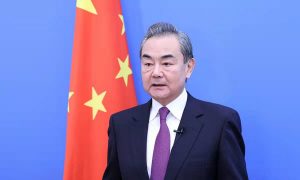Vietnam Govt Begins New Internet Rules, Mandates Social Media Giants To Submit Users Data

![]()

Vietnamese have begun to express their displeasure over the latest internet rules requiring Facebook and TikTok to verify user identities and hand over data to authorities, describing the action as attack on freedom of expression.
New Vietnamese internet rules now requires Facebook and TikTok to verify user identities and hand over data to authorities and has came into force on Wednesday.
Under “Decree 147”, all tech giants operating in Vietnam must verify users’ accounts via their phone numbers or Vietnamese identification numbers and store that information alongside their full name and date of birth.
They must provide that data to authorities on request and remove any content the government regards as “illegal” within 24 hours.
Local reports say all social media sites had been given 90 days to provide data on “the total number of regular visits from Vietnam” and the number of regular users per month to authorities, the website said.
“Decree 147 will be used to publicly suppress those with different viewpoints,” said activist Dang Thi Hue, who writes about politics and social issues on her Facebook account, which has 28,000 followers.
The decree was “the latest sign of infringement of basic freedoms… with a vague line between what is legal and what is not,” said former political prisoner Le Anh Hung.
“No one wants to go to jail, so of course some activists will be more cautious and afraid of this decree.”
Vietnam’s hardline administration generally moves swiftly to stamp out dissent and arrest critics, especially those who find an audience on social media.
Decree 147 builds on a 2018 cybersecurity law that was sharply criticised by the United States, European Union and internet freedom advocates who said it mimics China’s repressive censorship of the internet.










